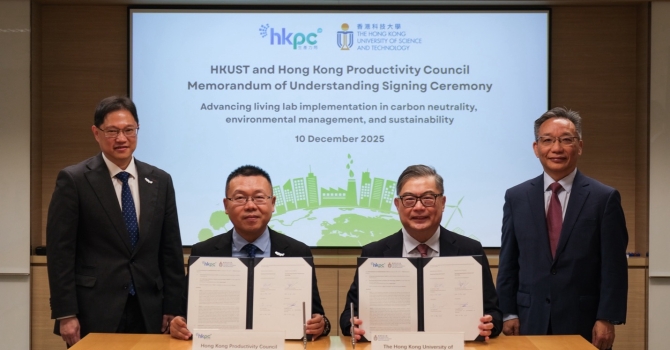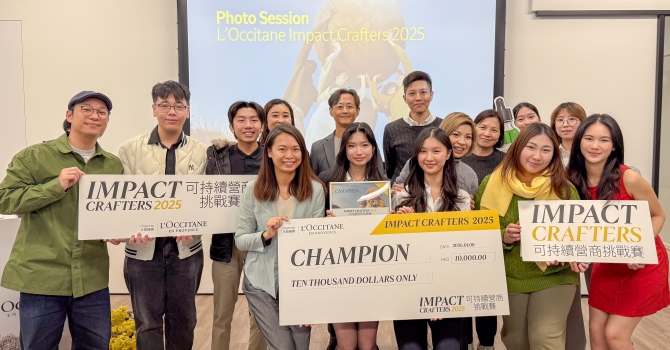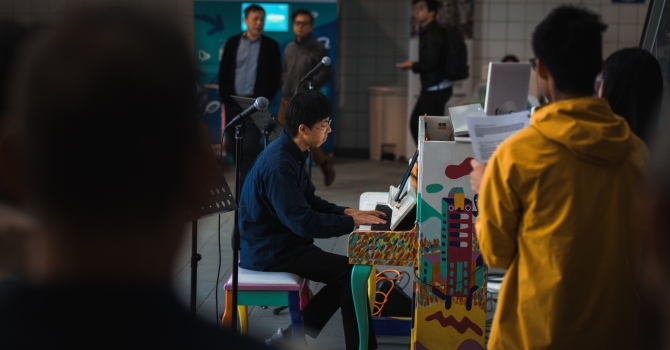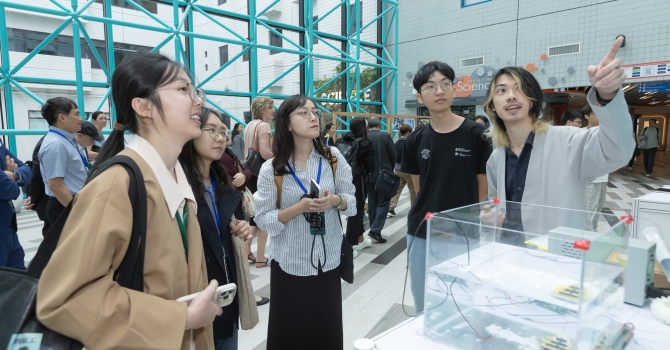Recycling Styrofoam and E-waste
HKUST is committed to create a sustainable campus by setting a target to cut landfill waste by 50% in 2020 over the base year of 2014. In addition to new food waste collections in our canteens and junior staff quarters, the university also enhanced recycling by installing 75 new recycling bins around campus to make it more convenient, and explored new channels to recycle the waste and reduce the amount sending to the landfill.
Two new recycling programs were launched in the fall semester. To recycle the Styrofoam we produce from packaging and food containers, HKUST will collaborate with an organization, Hong Kong Association of Youth Development (Tsuen Wan District) funded by the Environment and Conservation Fund (ECF).
All the Styrofoam we produce in UST offices, labs, canteens, supermarket and residences will be collected by our cleaners and stored at the LG7 refuse chamber. They will be delivered to our partner for separation (PE and PS types of Styrofoam) and machine compression into solid blocks which will be shipped to recycler in China to produce recycled products. With more than 70 companies and organizations participating in this program, HKUST will be one of them to join the recycling efforts to save resources.
With the success of the E-waste recycling day in April, another new recycling scheme is to collect our electronic and electrical waste produced on campus. In Hong Kong, 70,000 tonnes of E-waste are generated annually. The amended Ordinance next year will require that for regulated E-waste (Air-conditioner, Refrigerator, Washing machine, TV set and Computer products), a seller must arrange a removal service after distribution for consumers free of charge to competent recycler, and a waste disposal license is required for the recycler.
From mid-November, all the regulated e-waste on campus will be sent to ALBA, a recycling company appointed by the Environment Protection in Hong Kong. They will refurbish and repair the damaged appliances and donate to charities and people in need. Others will be separated and recycled into raw materials in new recycling facilities in Eco-park. We have also put collection carts in staff quarters, student halls and academic building for residents and staff to dispose their personal e-waste items for recycling. The program will not only reduce the landfill waste, but also share the reusable items with people in need.



